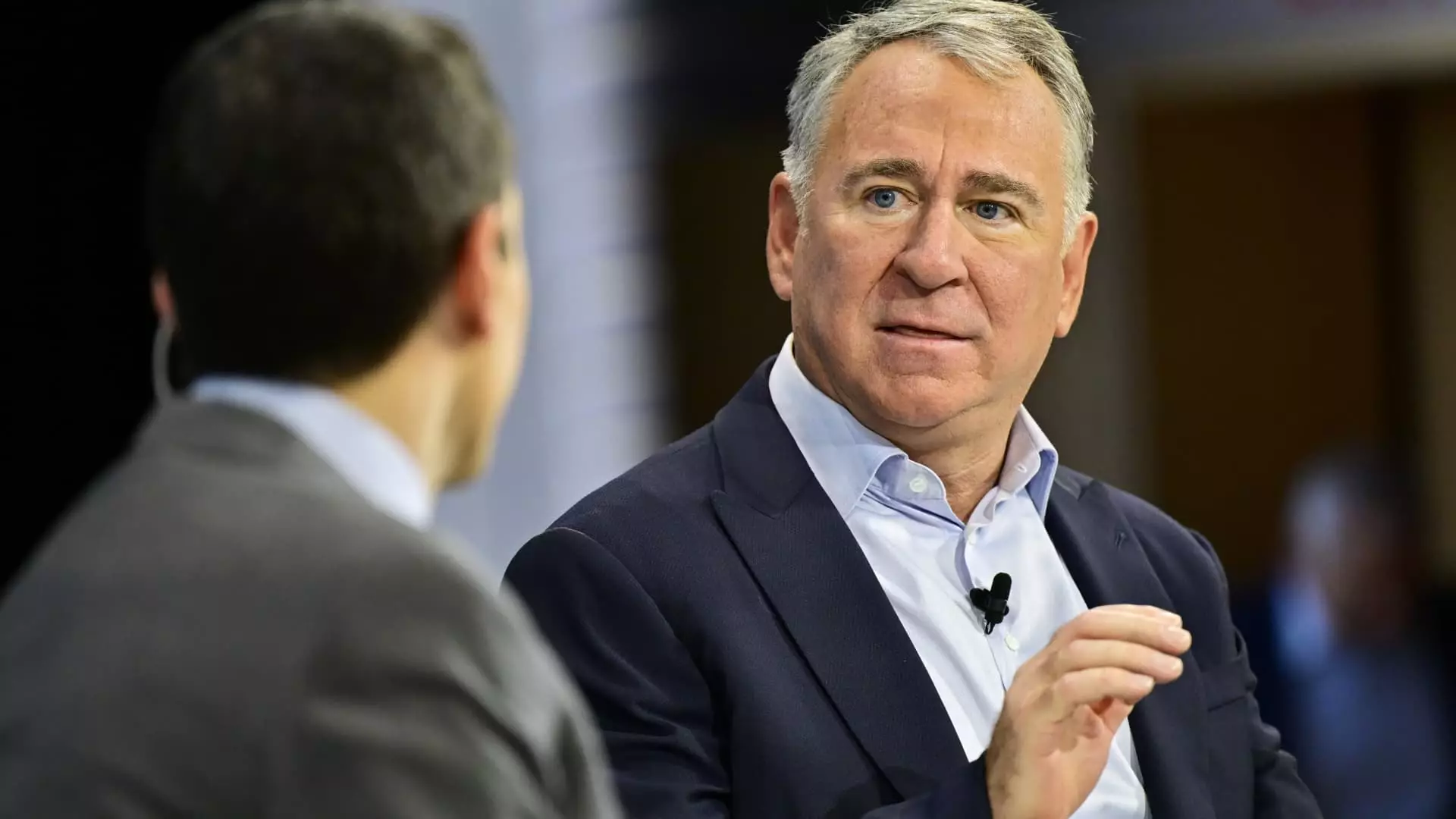Billionaire investor Ken Griffin’s prominent hedge fund, Citadel, showcased remarkable resilience in January 2025, despite the turbulent market conditions. According to a source familiar with the hedge fund’s performance, Citadel’s flagship Wellington fund achieved a commendable 1.4% increase during the month. This positive trajectory follows an impressive 15.1% surge in 2024. The source, who opted for anonymity to discuss confidential performance data, indicated that this growth was not limited to a single strategy—rather, it stemmed from robust performances across all five sectors employed by the fund. These include commodities, equities, fixed income, credit, and quantitative strategies, all of which saw gains in January.
Citadel distinguishes itself through its multistrategy approach, allowing for diversified investment across multiple asset classes. In January, this strategy proved advantageous as the firm’s tactical trading fund rose by 2.7%, alongside its long/short equities fund, which mirrored the same percentage increase. The global fixed-income arm of Citadel saw a respectable return of 1.9%. This blend of strategies enables Citadel to adapt swiftly to market fluctuations, which was particularly pertinent during a month characterized by intense price swings driven by investor sentiment and geopolitical developments.
The financial landscape in January was volatile, chiefly spurred by apprehension surrounding President Donald Trump’s protectionist policies. As tariffs on imports were a significant focus, investor wariness escalated, influencing market dynamics. Notably, the emergence of competition from the Chinese AI firm DeepSeek resulted in a substantial sell-off of Nvidia shares and triggered sell-offs in other major tech stocks. This reaction exemplifies how external technological advancements can create ripples in the stock market, often inciting fear among investors regarding the resilience of American tech firms against international competitors.
Before the transition to the new administration on January 20, Griffin openly expressed his concerns regarding potential economic repercussions stemming from aggressive tariffs. While suggesting that short-term benefits could arise for domestic companies due to weakened competition, Griffin cautioned that the long-term consequences would undermine productivity and competitive advantage for American firms. His warnings highlight a critical aspect of investment strategy: the importance of considering not only short-term gains but also the broader economic implications that can arise from policymaking.
As Citadel begins the new year with a solid performance, the broader market context remains a mixed bag. While the S&P 500 made significant headway, climbing 2.7% in January following a spectacular two-year period, investors remain on edge about the longevity of such gains in light of emerging threats and economic policies. Citadel, managing $65 billion in assets at the start of the year, exemplifies the adaptability and strategic foresight necessary to maneuver through uncertain times. As the investment world watches closely, Citadel’s approaches could very well become models for successfully navigating the complexities of contemporary markets.

